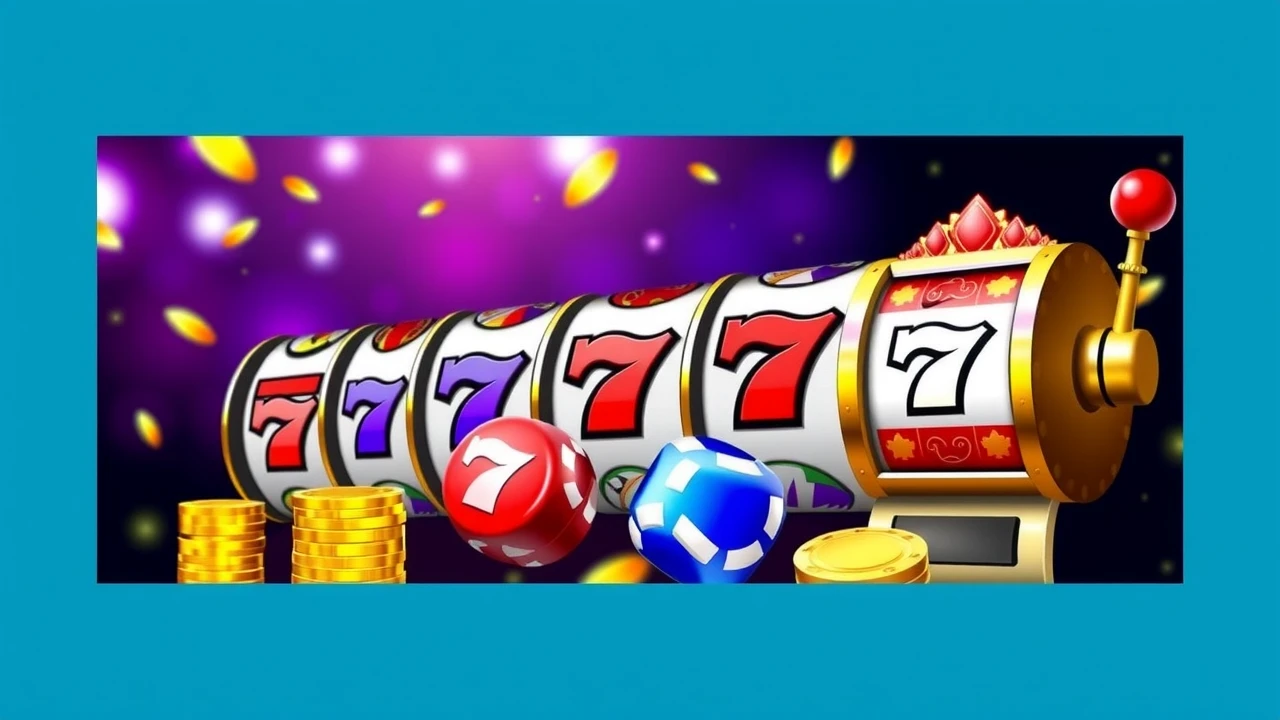Gambling Games and Their Influence in Popular Culture

Casino games have long captured the fascination of people around the world, becoming an integral part of both entertainment and tradition. From the shimmering lights of Nevada to the immersive experience of internet gambling, these games evoke thrill, risk, and sometimes even a sense of nostalgia. They are more than just hobbies; they have woven themselves into the tapestry of our lives, influencing various aspects from film and music to clothing and literature.
The charm of casino games goes beyond the wagering aspect, tapping into wider themes of fortune, risk, and psychology. As players convene around a card table or spin the wheel of fortune, they engage in an age-old ritual that echoes with our shared desire for adventure and unpredictability. This fascination has led to the growth of numerous references in movies, music, and video games, showcasing how intensely entrenched these activities are in mainstream culture. Whether it is the intense drama of a legendary caper or the colorful nightlife portrayed in recordings, casino games have created a substantial place that reflects our relationship with reward. non GamStop
Social Importance of Gambling Activities
Gambling activities have played a pivotal role in social aspects throughout the ages. Stemming from old civilizations, games of chance were often linked to rituals or events. For example, early iterations of these activities can be traced back to ancient Chinese and the Romans, where die games and betting on results were popular pastimes. These activities not only served as leisure but also as means of connecting people, facilitating connections among people within societies.
As cultures evolved, so did the sophistication and structure of casino games. The establishment of official casinos in the 17th century, particularly in Italy, marked a major shift in how games were viewed and organized. With specific spaces for gambling, the casino became a social hub where patrons from different backgrounds convened. This evolution contributed to the legitimization of the industry, transforming it from a mere pastime into an established industry that influenced the economy and regulations.
The impact of gambling activities on popular culture cannot be overlooked. As they were brought into the limelight in literature and film, games such as Texas Hold'em and 21 became symbols of chance, luck, and tactics. Famous figures and stories have emerged around these games, illustrating societal views towards fortune, wealth, and immorality. This fascination with gambling games has permeated various forms of media, solidifying their status in the public imagination and connecting them to broader cultural narratives throughout history.
Depiction of Casino Games in Entertainment
Casino games have long been a popular subject in various forms of media, reflecting both the thrill and nuances of the world of gambling. Films such as Ocean's Eleven and Casino Royal portray characters who navigate intense situations, showcasing not only the appeal of the gambling environment but also the tactics and choices that come with playing popular games like Texas Hold'em and 21. These films often dramatize the thrill of winning and the potential repercussions of losing, encapsulating the perils involved in betting.
Television shows have also explored the world of casino games, often integrating them into the plot as a backdrop for character development and drama. Shows like Las Vegas depict the lives of casino workers and customers, highlighting the vibrant, often tumultuous energy of the casino floor. Reality shows featuring intense gambling competitions further emphasize the attraction of gambling activities, drawing viewers into the drama and strategy involved in each game. Through these representations, media not only engages but also prompts conversations about fortune, expertise, and the nature of chance.
Digital games have increasingly integrated casino games into their design, allowing players to simulate the feeling of betting without financial exposure. Titles within the landscape of online gaming often include online slot machines, poker, and other casino favorites, creating an immersive gameplay that mirrors actual casino experiences. These virtual portrayals make casino games accessible to a global audience, appealing to both gamblers and those who enjoy the thrill of virtual experiences. As a result, the representation of gambling activities in media continues to shape societal views and importance, highlighting their function in society and culture.
Impact of Casino Games on Communities
Casino games have a significant effect on society, influencing multiple aspects of culture and social behavior. They often function as a venue for social interaction, where people come together to enjoy a shared experience. Game nights with friends or visits to casinos become social activities that build connections and create memories. This collective aspect enhances the fun value of casino games, making them a favored choice for celebrations and recreational pursuits.
Additionally, gambling activities have been portrayed in countless films, TV series, and written works, influencing views and attitudes towards gaming and gaming. Icons like James Bond playing baccarat or the high-stakes poker scenes in films have embedded these games in the collective imagination. This representation often idealizes the culture associated with casino activities, attracting new players and influencing trends in both style and conduct. These portrayals can spark curiosity and lead to a deeper investigation of the nuances of gaming.
Nonetheless, there are also negative implications linked to the widespread appeal of gambling activities. The temptation of quick monetary gain can lead to gambling addiction and economic troubles for some individuals. Society must contend with these consequences, promoting responsible gaming and education of the dangers involved. Finding a balance between the entertainment value of casino games with the potential for harm is vital to ensure that they remain a positive aspect of our societal fabric.



